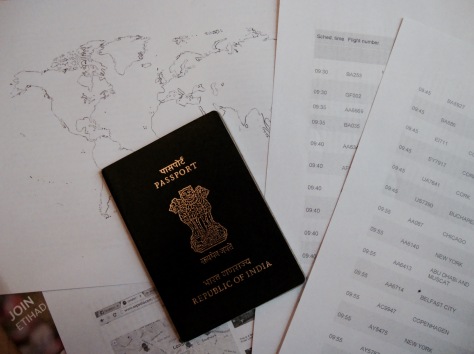If your work requires you to fly to other countries or even continents on a regular basis, you should be aware that your frequent flyer lifestyle comes with certain health risks. Air travel, particularly over long distances, exposes passengers to a number of factors that may have an effect on their health and well-being. Travelers with pre-existing health problems and those receiving medical care are more likely to be affected and should consult their doctor well in advance before travelling. Health risks associated with air travel can be minimized if the traveler plans carefully and takes some simple precautionary steps before, during and after the flight.
There are many factors that may affect the health and well-being of air travelers but fortunately many of these risks can be minimized with proper planning.
#Jet lag:
It is one of the most common problems amongst frequent flyers. Jet lag is a mismatch between your body’s internal day/night clock and a new day/night cycle in another time zone. Symptoms of jet lag include fatigue, insomnia, anxiety, decreased appetite, constipation, headache, confusion etc. In order to minimize its effects travelers require preparation and post-flight management. For those fliers who will be returning to their point of departure in a short time should maintain the same sleeping schedule as much as possible and For people staying in the destination’s time zone for longer than a day or so, should adapt the new time zone immediately on arrival and avoid thinking about the time back home.
#Deep Vein Thrombosis:
Another risk during air travel is developing leg clots or deep vein thrombosis. It happens when you’re in a plane, most of the time sitting still, in the same seat, with a limited opportunity to move around due to cramped conditions. Immobility can cause blood to pool in the leg veins and form a blood clot. This clot can travel to the lungs and cause breathing problems or a heart attack. Dehydration and the lack of oxygen in the cabin increase its chances. To overcome this problem frequent fliers are advised to stretch regularly, either by getting up and walking the isles or by performing in-seat stretches and stay well hydrated.
#Motion Sickness:
It’s a feeling you get when the motion you sense with your inner ear is different from the motion you visualize. It is a common condition that occurs in some people who travel by car, train, airplane or boat. Motion sickness progresses from a feeling of uneasiness to sweating or dizziness. This is usually quickly followed by nausea or vomiting. To reduce the effects continue looking straight ahead by keeping your eyes focused on a non moving object. The over-the-counter medication can be a very effective preventive measure in preventing motion sickness but remember that it can cause drowsiness and has other side effects, and its use should be discussed with your physician prior to your trip.
#Cabin Air Pressure:
Cabin air pressure falls as the aircraft gains height, which can cause the amount of oxygen in your blood to drop. The aircraft cabin is pressurized to keep this to a minimum but the change of pressure during take-off and landing can give a feeling of blockage of the ears. Chewing, swallowing or yawning can relieve these symptoms. Most reasonably fit passengers can easily cope with this situation.
#Dehydration:
The cabin air on board a plane is much drier than on the ground. Dehydration can cause headaches and tiredness, and is bad for your skin, kidneys, liver, joints and muscles. Drink plenty of water and fruit juice, and avoid alcohol or drinks containing caffeine. It may also help to use a mist sprayer or moisturize your skin.
#Flying whilst pregnant:
Air travel is generally safe for expectant mothers. You can travel by air up to 28 weeks into a normal pregnancy; in later stages of pregnancy with a medical certificate, up to 35 weeks for a single child and 32 weeks for twins. Each airline has its own guidelines so you should check with yours to make sure you can travel.
#Cosmic Radiation:
It is usually unheard and unknown by many frequent air travelers. Cosmic rays are highly energetic particles that originate in outer space and bombard the earth. But thanks to the earth’s atmosphere and magnetic field, cosmic radiation accounts for only 8% of the total radiation we receive annually. Having said that, the more we move away from our atmosphere towards outer space, the more susceptible we become to this radiation. People who fly frequently are exposed to more cosmic radiation than those who seldom fly or do not fly at all. People who fly at least once or twice a week are exposed to higher radiation levels over time; they may be more susceptible to skin cancer, leukemia or prostate cancer.
Frequent travel can be stressful, but it can also provide a means to explore new people, places, cultures and foods. You might even get a bit of sightseeing in as well! Make the best of it and remember to keep fit and eat well.
Bon voyage!
Disclaimer: The information on this page is intended for information only, and is not intended to replace the advice of your doctor.

